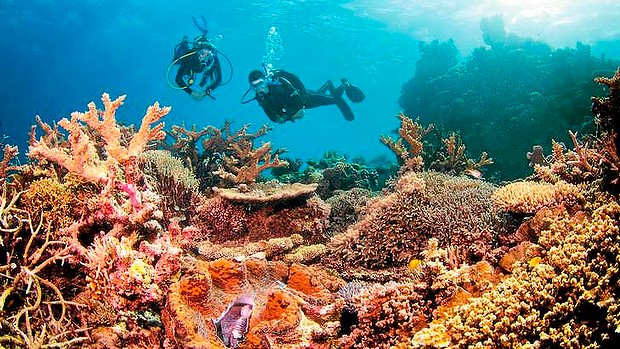In 2017 American ecologists from the Massachusetts Institute of Technology (MIT) develop the groundbreaking technology “GenCalc”. The new calculation method offers the opportunity to initiate transnational biodiversity compensation and credit trading – for the first time without neglecting the complexity of ecosystems and biodiversity. Soon, a number of countries that have already established biodiversity offset and banking systems declare their readiness to serve as testing regions for the new tool. In 2018, New South Wales and Victoria, where commercial biodiversity banking schemes have been in place since the mid-1990s, as well as New Zealand, start to implement the new technology from MIT and create a test network of banks.  The new software enables the trade of valuable species credits throughout Oceania. Careful ecological monitoring takes place in parallel to stop operations if a decline in species is registered. But this was not an issue, at least not until the end of 2018: Literally overnight, Great Barrier Reef corals start to die off en masse as an unintended side effect of coastal development activities. Due to unlikely circumstances, the monitoring system alarm is sent too late for this ecosystem to be saved. The aquatic flora and fauna of the Great Reef are lost forever. In the wake of this disaster, blame is attributed to a software failure.
The new software enables the trade of valuable species credits throughout Oceania. Careful ecological monitoring takes place in parallel to stop operations if a decline in species is registered. But this was not an issue, at least not until the end of 2018: Literally overnight, Great Barrier Reef corals start to die off en masse as an unintended side effect of coastal development activities. Due to unlikely circumstances, the monitoring system alarm is sent too late for this ecosystem to be saved. The aquatic flora and fauna of the Great Reef are lost forever. In the wake of this disaster, blame is attributed to a software failure.
An apocalyptic vision?
The (hypothetical?) scenario above is adapted from the Challenging futures of biodiversity and banking report (prepared by the Innovation in Governance Research Group, Berlin). This is what came to my mind when I read the headline of an ABC (Australia) article: Great Barrier Reef environmental offsets are flawed some days ago. What? Wait a minute: Great Barrier Reef and environmental (or biodiversity) offsets in the same sentence? If there is one ecosystem that is to be considered absolutely unique and outstanding on a worldwide scale (of course I know, when looking into detail every single ecosystem that exists is unique) then I would sure be the Great Barrier Reef. And as such, without any doubt, it should not become subject of offsets at all.
Despite, things are not always as obvious as they seem. While any direct impact on the Great Barrier Reef from development would never be admissible, it is still likely that it may be affected by indirect and cumulative impacts, especially by coastal developments. Therefore, marine biodiversity offsets might actually present a useful add-on option to the necessary conservation activities.
The alternative would obviously be to ask whether any coastal development has to be prohibited – at least for a unique and fragile ecosystem such as the Great Barrier Reef. But would that ever be politically achievable?
New article: Effective marine offsets for the Great Barrier Reef World Heritage Area
If you want to read more about marine biodiversity offsets and the Great Barrier Reef, have a look this article to be published in the October issue of Environmental Science & Policy by Melissa Bos, Robert L. Pressey and Natalie Stoeckl from Australian Research Council Centre of Excellence for Coral Reef Studies at James Cook University, Queensland. The researchers chose not weigh into the debate surrounding whether or not offsets should be used, and instead focussed on ways of improving the effectiveness of current offsets. Melissa Bos (in the article for ABC mentioned above) argues that despite the challenges marine environments present in terms of their management, working with them is not impossible. However she states:
“Offsets should not ever be used to justify the approval of a development that otherwise would not have been approved. In an ideal world, we could prevent all damage to the Great Barrier Reef, and we could do away with offsets. But in reality, it’s a balancing act: if you don’t have offsets, development will still go ahead, but we’ll have nothing to force companies to compensate for their damage.”
Abstract
Here’s the abstract to the research article:
Biodiversity offsets are a prevalent mechanism to compensate for development impacts to natural resources, but the appropriateness and efficacy of offsets remain the subjects of research and debate. Effective offsets for impacts to marine resources present even more challenges than those for terrestrial impacts. The Great Barrier Reef World Heritage Area is globally valuable for both biodiversity and heritage, but coastal development is undermining these values, and more effective offsets are needed to compensate for the damage. To improve the effectiveness of marine offsets for the Great Barrier Reef, we recommend that: (1) proponents be required to follow and document their adherence to the mitigation hierarchy, which considers offsets only as a last resort after avoidance and mitigation, (2) proponents and regulators consider the risk of offsetability prior to offset design, (3) the Australian government require offsets to achieve additional, measurable net benefits, relative to the counterfactual baseline, for all affected values, (4) specialist third parties (not government or proponents) design and implement marine offsets, (5) offsets are direct and specific to the affected values, with very minimal investment into research, (6) offsets are consolidated into strategic implementation sites, with long-term legal protection, that are consistent with the zoning of the Great Barrier Reef Marine Park and adjacent coastal land uses, (7) the time between impact and net benefit should be minimized, and net benefits should be maintained in perpetuity, (8) proponents pay the full cost of offset implementation, monitoring and evaluation, and cost is agreed upon before the development is approved, and (9) monitoring of the efficacy of offsets is separate to but coordinated with regional monitoring programs for ecosystem health, and monitoring data are made publically available. Within this context, and with careful and rigorous methods as described herein, offsets can contribute to maintaining the Outstanding Universal Value of the multiple-use World Heritage Area.
Abbot Point Coal Terminal
One of the latest coastal developments potentially influencing the marine area and Great Barrier Reef is the Abbot Point Coal Terminal (see my previous post Gina vs. the reef? A plea for informed debate on biodiversity offsets). This has been controversely discussed and picked up by the media, especially for the plan to dump spoil in the sea which was recently abandoned. Read more: Abbot Point dredging approval under heavy fire.
